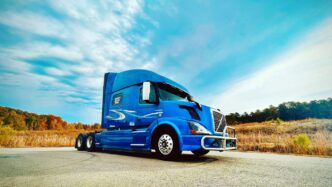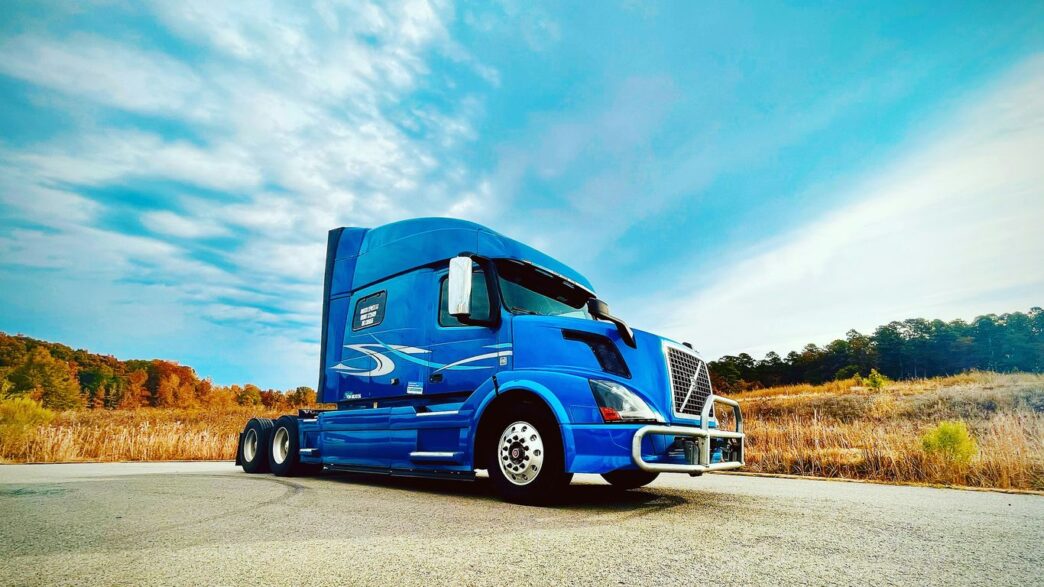1. QuickBooks Online
QuickBooks Online is a popular choice for many businesses, and for good reason. It’s a web-based system, meaning you don’t need to install anything on your computer. Just log in from any browser and get to work. While it doesn’t have features built specifically for trucking, it’s pretty flexible. You can connect it with other software, like TruckingOffice, to add those specialized trucking functions.
It’s a solid all-around accounting tool that can be adapted for the transport industry.
Here’s a look at its pricing structure:
- Simple Start: $30/month for one user.
- Essentials: $55/month for three users.
- Plus: $85/month for five users.
- Advanced: $200/month for 25 users.
One of the main advantages is its affordability compared to some other options. Plus, you can track mileage right from your phone, which is handy. On the flip side, you’ll likely need that separate trucking management software subscription, and getting direct customer service can sometimes be a challenge. Some users also find there’s a bit of a learning curve when you start integrating it with other systems.
2. Q7
Q7 really stands out if you’re looking for a single software package that handles both your general accounting and all the specific needs of a trucking business. It’s not just about basic bookkeeping; Q7 throws in things like payroll, managing who owes you money (accounts receivable), and who you owe money to (accounts payable). But where it gets interesting for transport companies is its built-in features for truckload and LTL dispatch, brokerage operations, freight billing, and even tracking fuel and mileage. This all-in-one approach can simplify things quite a bit.
It’s available as either a desktop program or a cloud-based option, giving you some flexibility in how you use it. Plus, they include training and technical support, which is a nice touch, especially since some users find it takes a bit to get the hang of everything. On the downside, they don’t list prices upfront, so you’ll need to call them for a quote. Also, the desktop version isn’t compatible with Macs, and there’s no free trial to test it out before committing.
Here’s a quick look at what Q7 brings to the table:
- Full-Suite Accounting: Handles standard bookkeeping tasks like payroll, AP, and AR.
- Trucking-Specific Tools: Includes dispatch, freight billing, and fuel/mileage tracking.
- Deployment Options: Choose between desktop or cloud-based software.
- Support Included: Comes with training and technical assistance.
- Customization: Offers many ways to tailor it to your operations.
3. Rigbooks
Rigbooks is a solid choice if you’re running a smaller trucking operation or are an owner-operator. It really shines when it comes to tracking things like orders, trips, expenses, and fuel mileage without a lot of fuss. One cool feature is that your drivers can actually log expenses and snap photos of receipts right from their phones while they’re out on the road. This makes keeping your expense records current way easier.
It’s particularly affordable for smaller fleets and owner-operators, though it can get pretty expensive if you have a lot of trucks.
Here’s a look at their plans:
- Basic Entry: $19/month (plus $19 for each extra truck)
- Leased O/O: $29/month (plus $24 for each extra truck)
- Independent O/O: $49/month (plus $29 for each extra truck)
- Small Fleet: $149/month for up to five trucks (plus $29 for each additional truck)
Rigbooks also offers a free 30-day trial, which is great for testing it out. Plus, it has unlimited users, which is a nice perk. It’s pretty straightforward to use, and it helps with IFTA reporting by tracking miles. The main downsides are that it doesn’t provide a full bookkeeping system on its own, and some of the plans don’t even include invoicing, which is a bit of a bummer.
4. Axon
Axon is a pretty solid accounting software built specifically for trucking companies. It aims to be an all-in-one solution, meaning it tries to handle a lot of different tasks without you needing separate programs. The big selling point here is its integration. It connects accounting, fleet management, and dispatch all in one place, which should cut down on a lot of manual data entry and the headaches that come with it. If you’re tired of typing the same info into multiple systems, Axon might be worth a look.
What can it do? Well, it covers the basics like payroll and IFTA tax calculations, which is a must for trucking. It also has features for managing your fleet and dispatching. It’s designed to be flexible, so you can tweak it to fit how your business runs and connect it with other systems you might already use.
This software seems best suited for midsize to larger trucking operations that really need those real-time reporting tools. It’s not the cheapest option out there, and they don’t list prices on their website – you have to call them for a quote. Also, it doesn’t come with a free trial, and some users mention there’s a bit of a learning curve to get the hang of it. But if you’re looking for a deeply integrated system that handles a lot of trucking-specific tasks automatically, Axon is definitely one to consider.
5. Zoho Books
Zoho Books is a solid accounting choice, even though it wasn’t built specifically for trucking. It handles a lot of the usual accounting stuff like paying bills, getting paid, and managing payroll. What’s really handy for truckers is its mobile app. You can snap pictures of receipts, log expenses, and even create invoices right from your phone. This makes keeping track of your finances on the road much simpler. It’s a good way to keep all your financial info in one secure spot.
Zoho Books has a few different plans:
- Free: Costs nothing if your business makes $50,000 or less.
- Standard: $12/month for up to 3 users.
- Professional: $24/month for up to 5 users.
- Premium: $36/month for up to 10 users.
- Elite: $129/month for up to 10 users.
- Ultimate: $249/month for up to 15 users.
While it’s great for mobile use and online payments, keep in mind it doesn’t have any trucking-specific features built-in, and it doesn’t connect with other trucking management software. Also, you’re limited to 15 users unless you pay extra.
Wrapping It Up
So, picking the right accounting software for your trucking business isn’t just about finding a program; it’s about finding a partner that helps keep your operations running smoothly. We’ve looked at some solid options, from those that integrate well with other tools to all-in-one solutions. Remember, the best choice depends on what your specific business needs. Take your time, compare features, and think about how the software will grow with you. Getting this right means less time worrying about numbers and more time focused on the road ahead.












